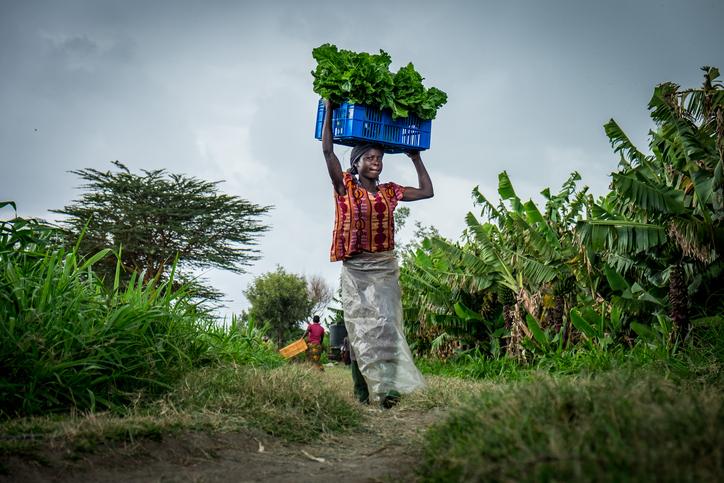Impact Evaluation of the Intervention Towards Sustainable Clusters in Agribusiness through Learning in Entrepreneurship

Despite the global rise in demand for food, smallholder farmers are not able to supply agricultural products to local, national, and international markets because of low capital, limited access to credit, and risk aversion. Value added processes have emerged to alleviate the constraints smallholder farmers face in enhancing their productive capacity.
Towards Sustainable Clusters in Agribusiness through Learning in Entrepreneurship (2SCALE) is an agribusiness initiative that aims to connect farmer groups, buyers, and intermediaries. The agribusiness cluster approach is designed to help rural smallholders move from subsistence farming to farming as a business and supply agricultural products to markets. 2SCALE is funded by the Ministry of Foreign Affairs of the Netherlands and is implemented by the International Fertilizer Development Center, the Base of the Pyramid Innovation Center, and the International Centre for Development Oriented Research in Agriculture.
Project Evaluation
Between 2015 to 2018, AIR evaluated the impacts of 2SCALE on farm income and food security for participating farmers. The impact evaluation studies were carried out in five countries–Kenya, Uganda, Ghana, Benin, and Mali–to determine to what extent observed benefits can be attributed to program interventions.
To arrive at its findings, AIR implemented a longitudinal, quasi-experimental evaluation with repeated measures at the farm-household level. We used administrative data and expert knowledge in each country to identify a reasonable comparison group of farmers for the 2SCALE farmers. Then, we collected baseline and follow-up data for farm households in both groups. In 2015, we collected baseline data for 4,000 households (800 from each of the five countries) covering intermediate outcome indicators such as knowledge and changes in agricultural practices, as well as on longer term outcomes, including total farm income, yields, crop selection, and food security. We collected endline data in 2017. To estimate program impacts, we used a difference-in-difference approach combined with statistical matching.
Results
The evaluation results showed that some of the 2SCALE partnerships assessed had the potential to change farmer behavior. Data on intermediate outcomes demonstrated that 2SCALE improved partnership governance; business models of the lead firms; access to finance; timely payment; adoption of innovations; and access to markets. The evaluation concluded that if changes in intermediate outcomes were sustained over time, the various partnerships could have longer-term positive impacts on farm income and productivity.
